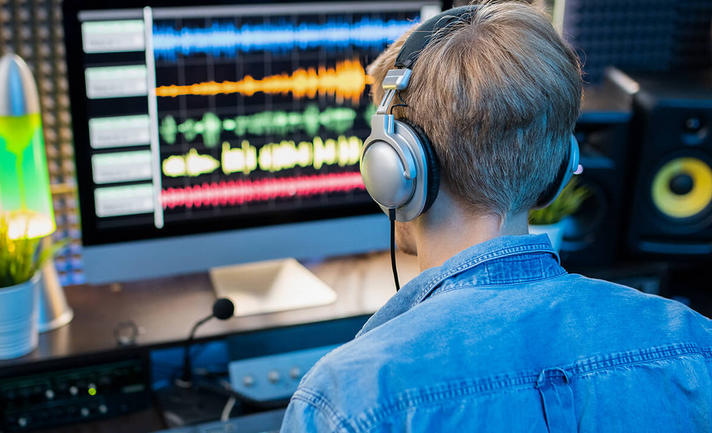Music composition, an art form that has captivated human emotions for centuries, is undergoing a transformation with the infusion of computer technology. The integration of computers into the world of music composition has revolutionized the creative process, enabling musicians and composers to explore uncharted territories of sound and melody. In this article, we delve into the profound impact of computers on music composition, unravelling the ways in which technology harmonizes with human creativity.

Evolution of Music Composition
Traditionally, music composition involved pen, paper, and a painstakingly slow process of notation. Composers meticulously wrote down musical notes and structures, relying on their musical intuition to craft symphonies, sonatas, and concertos. While this method holds its charm, computers have accelerated the pace of composition.
With the advent of music composition software like Finale, Sibelius, and MuseScore, composers can input musical ideas quickly, edit compositions on the fly, and listen to their creations in real time. This digital transformation empowers composers to experiment with various musical elements, fostering creativity and efficiency.
Digital Instruments and Virtual Orchestrations
One of the most significant contributions of computers to music composition is the proliferation of digital instruments and virtual orchestrations. Software synthesizers and digital audio workstations (DAWs) allow composers to access an extensive palette of sounds and instruments. Whether it’s the rich timbre of a grand piano or the ethereal notes of a synthesizer, composers can craft compositions with unparalleled diversity.
Moreover, virtual orchestrations provide composers with the ability to simulate an entire orchestra. Software libraries like EastWest’s Symphonic Orchestra and Kontakt’s orchestral instruments enable composers to create grand symphonies without the need for a physical ensemble. This accessibility has democratized music composition, allowing aspiring composers to dream big without the constraints of a limited budget.
Algorithmic Composition
Computers are not just tools for playback but also partners in the creative process. Algorithmic composition, a subfield of computer-assisted composition, leverages algorithms and mathematical models to generate musical compositions. Composers input parameters, rules, and constraints, and the computer generates music based on these instructions.
Algorithmic composition can lead to avant-garde and experimental pieces that challenge conventional musical norms. It opens doors to unconventional harmonies, rhythms, and structures that human composers might not have explored. This symbiosis between human creativity and computational logic has given birth to a new realm of musical innovation.
Real-Time Feedback and Iteration
In the realm of music composition, feedback is invaluable. Computers provide composers with real-time feedback on their compositions, helping them refine and enhance their work. Whether it’s identifying harmonious chords, suggesting tempo changes, or highlighting potential errors, the software can be a composer’s assistant.
Furthermore, computers enable composers to iterate rapidly. They can experiment with variations of a melody or arrangement, instantly hearing how each change impacts the composition. This iterative process enhances the quality of the final piece and empowers composers to explore multiple creative avenues.
Collaborative Composition
The digital era has also fostered collaborative music composition. Composers, even if geographically distant, can work together seamlessly through cloud-based composition platforms. These platforms facilitate real-time collaboration, allowing multiple composers and musicians to contribute their ideas and talents to a single composition.
Accessibility and Inclusivity
Computers have democratized music composition, making it more accessible to people of all ages and backgrounds. Aspiring composers, regardless of their financial resources, can harness the power of music composition software and virtual instruments. This inclusivity has diversified the world of music, bringing forth compositions from a multitude of voices and perspectives.
The Future of Music Composition
As technology continues to evolve, so too will its impact on composition. Machine learning and artificial intelligence are on the horizon, promising new frontiers in music creation. AI-powered systems can analyze vast musical databases, generate harmonious chord progressions, and even compose original pieces.
Conclusion
In conclusion, computers have ushered in a transformative era in composition. They have accelerated the creative process, expanded the possibilities of sound, and made music composition more accessible than ever before. The harmonious blend of human creativity and computational power continues to produce musical compositions that resonate with audiences worldwide, ensuring that the symphony of innovation in music will persist for generations to come.

